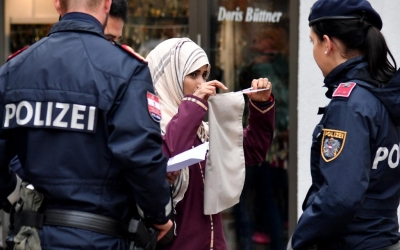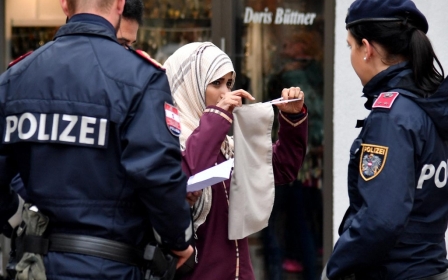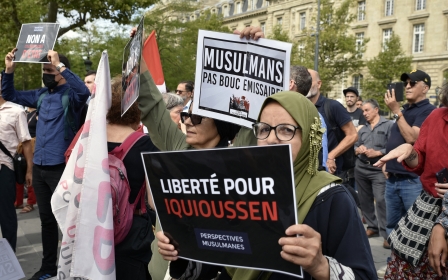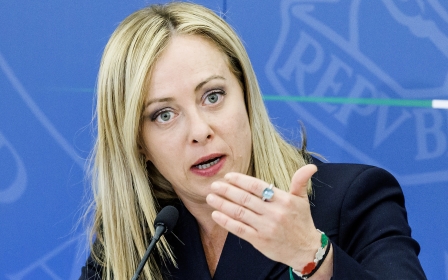Sweden: The Quran burning incident is hate speech, not free speech
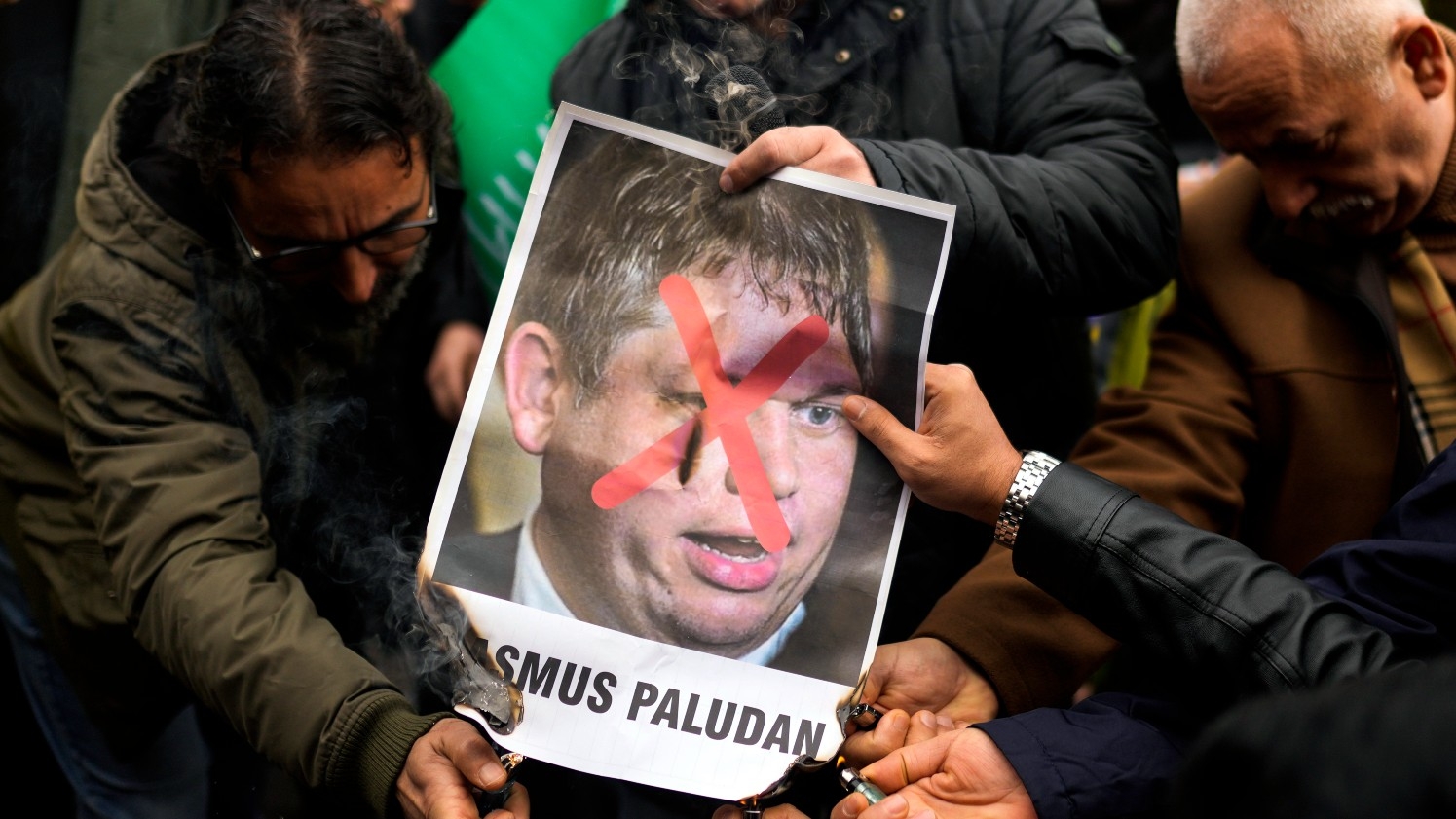
For at least the past two decades, a recurring episode of Islamophobia has taken place in Europe.
This is how it generally follows: some far-right figure looking to garner attention and cause controversy carries out a spectacle (i.e. burning the Quran) aimed at generating controversy and antagonising billions of Muslims around the globe.
The far-right figure didn’t carry out this act to express his right to free expression, he initiated the Quran burning because he sought to attack Muslims
When Muslims call attention to the act, rightly describing it as hate speech, the said far-right individual, with backing from authorities, immediately pulls out the freedom of expression card.
That’s exactly what happened this past weekend when Danish-Swedish far-right politician, Rasmus Paludan, carried out the vile act of burning the Quran, the holy book for Muslims who believe it to be the word of God.
Just days after this stunt, another far-right European politician took part in a similar scene. Dutch politician Edwin Wagensveld, the head of the far-right movement, PEGIDA, tore pages out of the holy book before setting them on fire.
It’s no coincidence that Paludan, who has previously been found guilty of racism, and other far-right figures choose the Quran as a target of their hate. They are very well aware of the weight the holy book carries in the lives and identities of billions of Muslims, so the decision to burn the Quran is a calculated one.
Paludan has a documented history of racist and Islamophobic rhetoric, as well as engaging in sexually explicit conversations with minors. The repeat offender has called for the banning and expulsion of Muslims and has described Islam as an "evil and primitive religion".
The Extremist Monitoring Analysis Network reports that the far-right politician has previously called the Quran "the great whore book" and "urged followers to urinate on it".
Given these very clear anti-Muslim views, Paludan’s decision (time and time again) to burn the Quran is driven by Islamophobic hate. The far-right figure didn’t carry out this act to express his right to free expression, he initiated the Quran burning because he sought to attack Muslims.
Symbolic murder
As professor Farid Hafez recently argued, book burning in this context "becomes symbolic murder, or symbolic destruction". Engaging in acts such as tearing apart pages, burning the book, or flushing it down toilets (as US military personnel did at Guantanamo Bay) is all done with a specific aim and intent: to cause pain and hurt.
This isn’t free speech, it’s hate speech.
Conversations around Islamophobic rhetoric and Quran burning rarely end in condemnation and instead are instantly diverted to debates around free expression.
In response, I argue (and so does the Swedish Institute) that the right to free expression is not absolute. There are safeguards in place and they are needed to ensure a safe and just society.
Take, for example, the recent controversy with the fashion house, Balenciaga, following an ad campaign that had disturbing references to pedophilia and child exploitation. Wider society immediately responded in disgust and condemned the brand for its ad, leading the fashion house to issue an apology and vow to carry out an internal and external investigation. For those free expression absolutists, would they be okay with visual campaigns that encourage, promote or normalise child exploitation?
Furthermore, the right to free expression - and what is protected under it - is subjective. Those in positions of power often get to decide what is and isn’t permitted. A quick review of cases involving journalists, academics and rights activists who have been silenced or faced lawsuits due to their work on calling attention to Israel’s ethnic cleansing of Palestine perfectly illustrates this point.
Another example of subjectivity occurred this week when Twitter and YouTube cowed to pressures from the Indian government to remove any references to a BBC documentary calling attention to PM Narendra Modi’s role in the deadly 2002 anti-Muslim Gujarat pogroms.
In Europe, many of the leaders holding Islamophobic views equally have the power to determine what is and isn’t acceptable free expression. It is also no coincidence that those who take part in the burning of the Quran are often, more likely than not, white men. The current system gives far more privileges and rights to white individuals, let alone party leaders, than others.
The limits of 'free' speech
Given the reality of Islamophobia in Europe, it is no surprise that free expression arguments are wielded to defend anti-Muslim racism.
Hate crimes, especially those targeting visible Muslims, are constant, as are the growing restrictions and outright bans on the hijab. Acts of vandalism and arson against mosques are endless, and in many countries the authorities have taken considerable action to criminalise Muslim civil society, shutting down organisations and mosques and imprisoning individuals.
Just as free expression is used to justify Islamophobia, it’s also rarely brought up when the rights of Muslims are restricted. Muslims who are politically active and call attention to Islamophobic policies are deemed "extremist" and "terrorist sympathisers", making them susceptible to criminal charges.
Even Muslim academics who study Islamophobia are not safe from these allegations, as illustrated by the targeting of professor Hafez by Austrian authorities.
In these incidents, there is little discussion around Muslims' rights to free expression. Such examples demonstrate how inalienable rights are subjectively applied, often to the detriment of marginalised and vulnerable groups.
Islamophobia also comes into play when Muslims exercise their right to free expression by protesting against hateful acts such as Quran burnings.
The media amplifies anti-Muslim tropes by framing these voices as hostile and "extremist", constructing them as close-minded and violent individuals who want to shut down critique and debate.
Free expression arguments are wielded to defend anti-Muslim racism
Let's be clear: there is criticism and then there's hate speech - burning the Quran falls into the latter.
Sweden's foreign minister, Tobias Billstrom, described Paludan’s act as "appalling" but referenced the country’s "strong protection" for free expression in its constitution as the reason authorities did not stop the event from taking place.
The United States responded in a similar manner, describing the act as "deeply disrespectful" but stopped short of condemning it. It's interesting that authorities fail to (or perhaps just don't want to) see such incidents as hate-motivated and dangerous, considering their criminalisation of similar behaviour targeting other marginalised groups.
The burning of the Quran is a symbolic call for violence against Muslims. It is motivated by anti-Muslim bigotry and is carried out by individuals who have a history of taking part in provocative acts aimed at antagonising and harassing a religious group.
References to "free expression" in such contexts are no more than a cover for anti-Muslim views, especially as Muslims’ right to free expression is increasingly restricted around the globe.
Failure to tackle such hateful incidences creates an environment in which Islamophobia becomes even more normalised and results in a hostile and dangerous environment for Muslims.
The views expressed in this article belong to the author and do not necessarily reflect the editorial policy of Middle East Eye.
Middle East Eye propose une couverture et une analyse indépendantes et incomparables du Moyen-Orient, de l’Afrique du Nord et d’autres régions du monde. Pour en savoir plus sur la reprise de ce contenu et les frais qui s’appliquent, veuillez remplir ce formulaire [en anglais]. Pour en savoir plus sur MEE, cliquez ici [en anglais].



